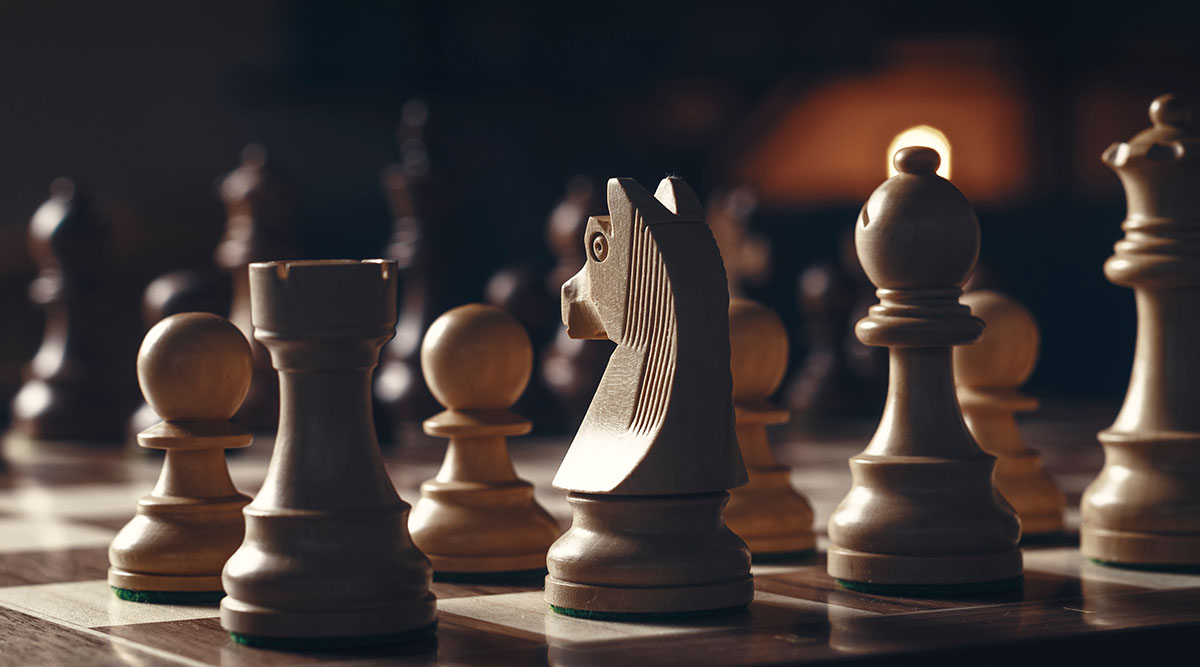Rethinking What It Means to Compete
For most of my life, I’ve been in competitive environments. I grew up running hurdles and playing basketball. I played chess seriously. I attended academically rigorous schools where the pressure to perform was built into the culture. So, for a long time, I equated ambition with competition—and competition with winning.
But over the years, something shifted. I realized that my motivation wasn’t just about “beating” someone else. What kept me going wasn’t the scoreboard or the grade—it was curiosity. I wasn’t driven by the desire to dominate. I was driven by the question: How good can I get? What more can I learn?
That change in mindset didn’t make me any less ambitious. If anything, it made me more focused, more patient, and more grounded. I still believe in competition—but I’ve come to believe that the best, most sustainable form of ambition is fueled by curiosity, not ego.
Chess: The Game That Taught Me to Love the Process
Chess was one of the first places where I began to understand this difference. Early on, it was all about winning. I’d get frustrated when I lost. I’d chase quick wins, play aggressive openings, and measure progress only by my results. But that approach didn’t get me very far.
Over time, I started to slow down. I began to enjoy analyzing my losses, studying openings, and understanding why certain positions worked better than others. I started to love the thinking behind the game, not just the win at the end of it. That’s when I really improved.
The same mindset now helps me approach any challenge. Whether it’s a complex problem set, a technical project, or even personal growth, I’ve learned that curiosity makes the experience more meaningful—and more productive. When you compete from a place of wanting to understand, rather than needing to prove, everything changes.
On the Track, It’s You vs. Yourself
Running hurdles taught me something similar. It’s a solitary event. You’re not bumping elbows with anyone else—you’re racing against time, and more importantly, against your last performance. There’s no one to blame if you clip a hurdle or mistime your stride. That responsibility forces you inward.
What I loved about hurdling wasn’t the win—it was the rhythm. The way you had to tune into your body, feel the steps, time your jumps. Improvement didn’t come in dramatic leaps. It came from refining technique, watching film, adjusting stride lengths by half a foot. It came from playful experimentation and consistent repetition.
That’s curiosity in motion. You’re not obsessing over results. You’re exploring your limits, learning how to stretch them, and finding joy in small breakthroughs.
Competition Without Ego Builds Resilience
One of the biggest misconceptions about competitive people is that they’re obsessed with being better than others. But the people I’ve admired the most—teammates, classmates, mentors—weren’t competing to win over others. They were competing to grow within themselves.
When you’re motivated by ego, a loss can feel like a personal failure. But when you’re motivated by curiosity, a loss becomes feedback. A missed shot, a bad move, a flawed assumption—it’s all part of the process. It doesn’t break you. It teaches you.
This mindset has helped me stay grounded in the face of pressure. It’s helped me bounce back when things don’t go according to plan. It reminds me that every experience, good or bad, is an opportunity to ask a better question next time.
Letting Curiosity Shape the Way We Work
In fast-paced academic or professional settings, there’s a lot of pressure to deliver quickly, perform flawlessly, and always have the right answer. But I’ve found that the best work often comes from a place of openness, not certainty.
Whether I’m working with a dataset or solving a complex problem, I try to bring a mindset of exploration: What haven’t I tried? What am I not seeing? What pattern is hiding here? That mindset doesn’t always lead to immediate success—but it almost always leads to better thinking.
Curiosity also makes collaboration easier. When you’re not trying to prove you’re the smartest person in the room, you’re more willing to listen, to learn from others, and to combine perspectives. That kind of collaborative competition—where everyone’s pushing each other to get better—is the kind I value most.
The Joy Is in the Journey
If there’s one thing I’ve learned from all these experiences—from chess tournaments to track meets to late nights in the library—it’s this: progress fueled by curiosity is more joyful, more resilient, and more sustainable than progress fueled by comparison.
Ambition is a good thing. But it’s even better when it’s rooted in something deeper than status. When it’s fueled by a desire to grow, to understand, to explore your own potential—you don’t just win more often. You enjoy the path a whole lot more.
Compete with Questions, Not Just Answers
I still love to compete. I still enjoy testing myself and pushing my limits. But now, I try to compete with curiosity—not just to win, but to grow.
So if you’re a student, a professional, or just someone figuring out your path, I’d encourage you to ask: What if I let curiosity lead? What if ambition wasn’t just about reaching the top, but about discovering what I’m truly capable of?
That’s where the real magic happens. That’s where growth becomes a game you actually want to keep playing.
